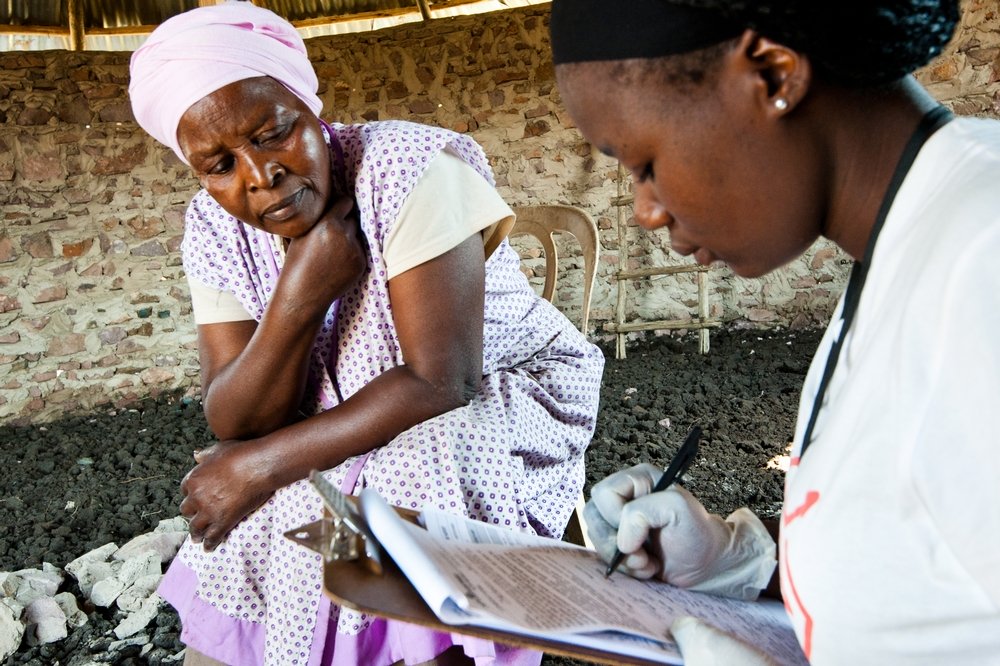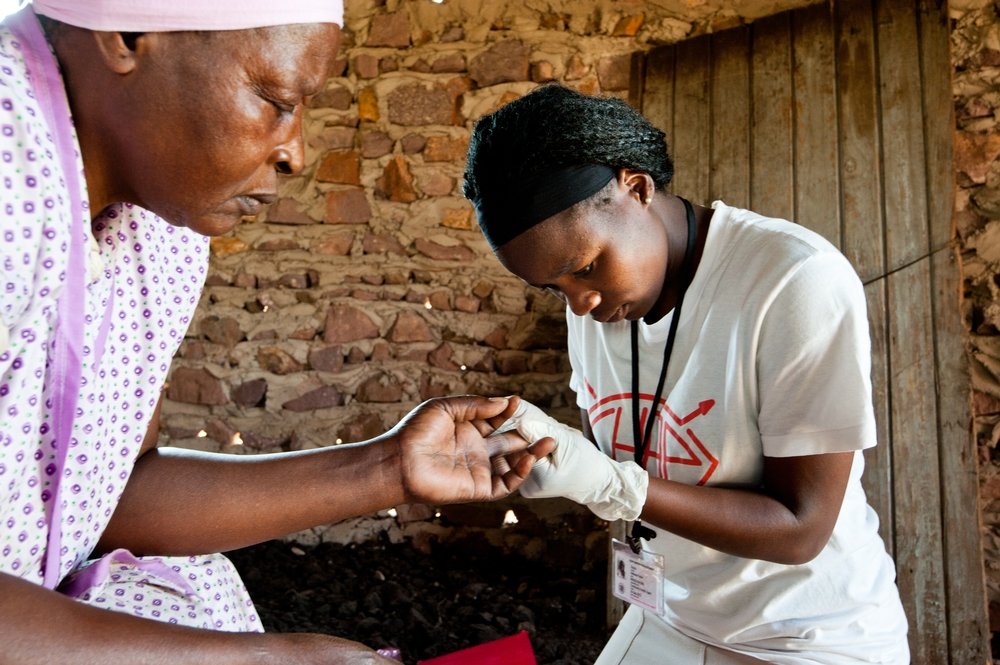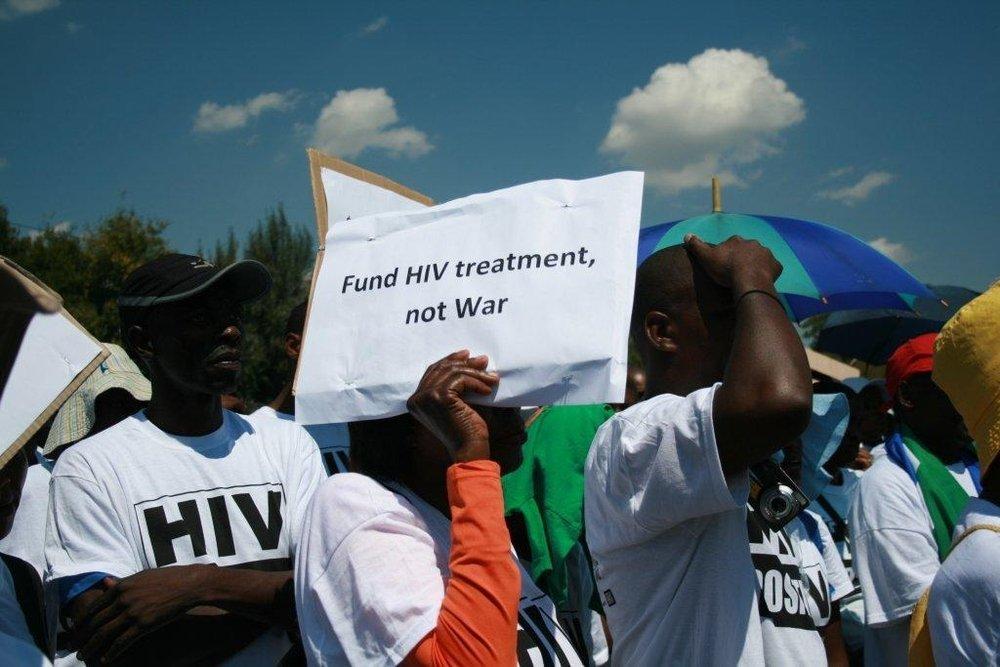
Johannesburg - The Treatment Action Campaign (TAC), Doctors Without Borders (MSF) and SECTION27 welcome the announcement that the Department of Trade and Industry (DTI) has called for public comment on the long-overdue draft National Policy on Intellectual Property (IP). The DTI has taken heed of calls for urgent reform, by offering numerous recommendations to prevent the patent system from having a detrimental impact on public health.
This policy is not just about legal technicalities, but will affect the lives of many people living in South Africa. It will have an impact on the ability of medical aid schemes to pay for new cancer medicines for their members. It will determine whether MSF can provide key multi-drug resistant tuberculosis medicines in their treatment programmes.
It will play a key role ensuring that the over five million HIV-positive people in South Africa can access the latest generation of anti-retroviral medicines.
While the policy consultation is only the start of the legislative process, the principles outlined in the document set the stage for changes that promise to increase competition in the pharmaceutical sector and lower the price of medicines in South Africa.
A key challenge noted by the policy is, that at present, South Africa does not examine patent applications—instead, the current system allows pharmaceutical companies to obtain multiple patents on the same drug, even for inventions that do not fall under the country’s definition of innovation.

This allows companies to extend the life of their monopolies, block competition from generic manufacturers, and charge inflated prices for medicines in both the public and private sector. To remedy this, the policy notes that South Africa should set a higher standard for innovation, so patents are not granted for simply combining existing medicines, or registering new uses for previously patented drugs. At the same time, the policy notes the need for a substantive patent examination system, which should better ensure criteria for granting a patent is upheld.
The draft policy lays the foundation for a new IP system which, if properly implemented, could allow the DTI to promote legislation that realizes the Constitutional right to healthcare. For example, the draft policy states in strong terms that South Africa should not be party to trade agreements with provisions that would undermine the right to health. We welcome such announcements as positive indications that the DTI is on the road to meaningful reform. We encourage the DTI to stand by these statements, even if multinational pharmaceutical companies attack such ideas.
TAC, MSF and SECTION27 are confident that this draft policy provides the framework for South Africa to uphold prior commitments made within the South African Development Community (SADC), African Union and across the BRICS region to utilise legal flexibilities outlined in the World Trade Organization’s agreement on Trade Related Aspects of Intellectual Property Rights (TRIPS). South Africa can also look to its BRICS and African contemporaries to inform its own process of national patent law reform. India and China already have provisions within national laws that protect public health, many of which have come into force in the last decade. Legal reform efforts are currently underway in Brazil, as well as in Zambia and Uganda – these countries are considering adopting higher standards of patentability similar to India, as well as other reforms similar to those envisioned in the DTI draft policy.
In addition to studying the draft policy in greater detail and compiling comments, MSF, TAC and SECTION27 intend to consult widely with our members, interested members of the public, academics, and other partner organizations, as well as the DTI, to further inform our submissions.
We also encourage the DTI to widely publicize any consultations the Ministry hosts during the comment period, and to invite a broad range of stakeholders to ensure adequate public education on this complex and far-reaching policy. Our organizations look forward to working in closer collaboration with the DTI going forward. Further development of this promising policy can identify and redress current administrative and legal imbalances in the patent system. Ultimately, this can influence future legislation that no longer favors pharmaceutical companies’ profits over public health.
- Details on the consultation process and upcoming public meetings organized by TAC, MSF and SECTION27 will be posted at www.fixthepatentlaws.org.
Notes to Editors:
For almost two years, TAC and MSF have called for several key reforms to the country’s IP laws, including, but not limited to:
- Rapid adoption and implementation of a substantive examination system for all pharmaceutical patent applications, as required by Section 34 of the Patents Act;
- Strengthening patentability criteria to prevent patent evergreening and promote high standards of medical innovation;
- Enhancing public transparency of the Patents Office concerning pending patent applications and the status and content of granted patents, with prioritisation placed on pharmaceutical patents;
- Allowing a broad range of third parties to file pre-grant and post-grant patent oppositions;
- Broadening the grounds and facilitating the procedures for issuing a compulsory license when pharmaceutical products are priced beyond the reach of South Africans;
- Allowing a research exception, so advances in the field of medicine are not hindered by the inability to conduct research using patented pharmaceutical products in clinical trials or the development of new drugs.
Available spokespeople:
Julia Hill, South Africa Advocacy Officer, MSF
Marcus Low, Researcher, Treatment Action Campain (TAC)
Umunyana Rugege, Section27
For further information or to arrange interviews:
Kate Ribet, Media Liaison Officer, MSF SA
kate.ribet@joburg.msf.org | 079 872 2950
Find out more about MSF's work in South Africa.
